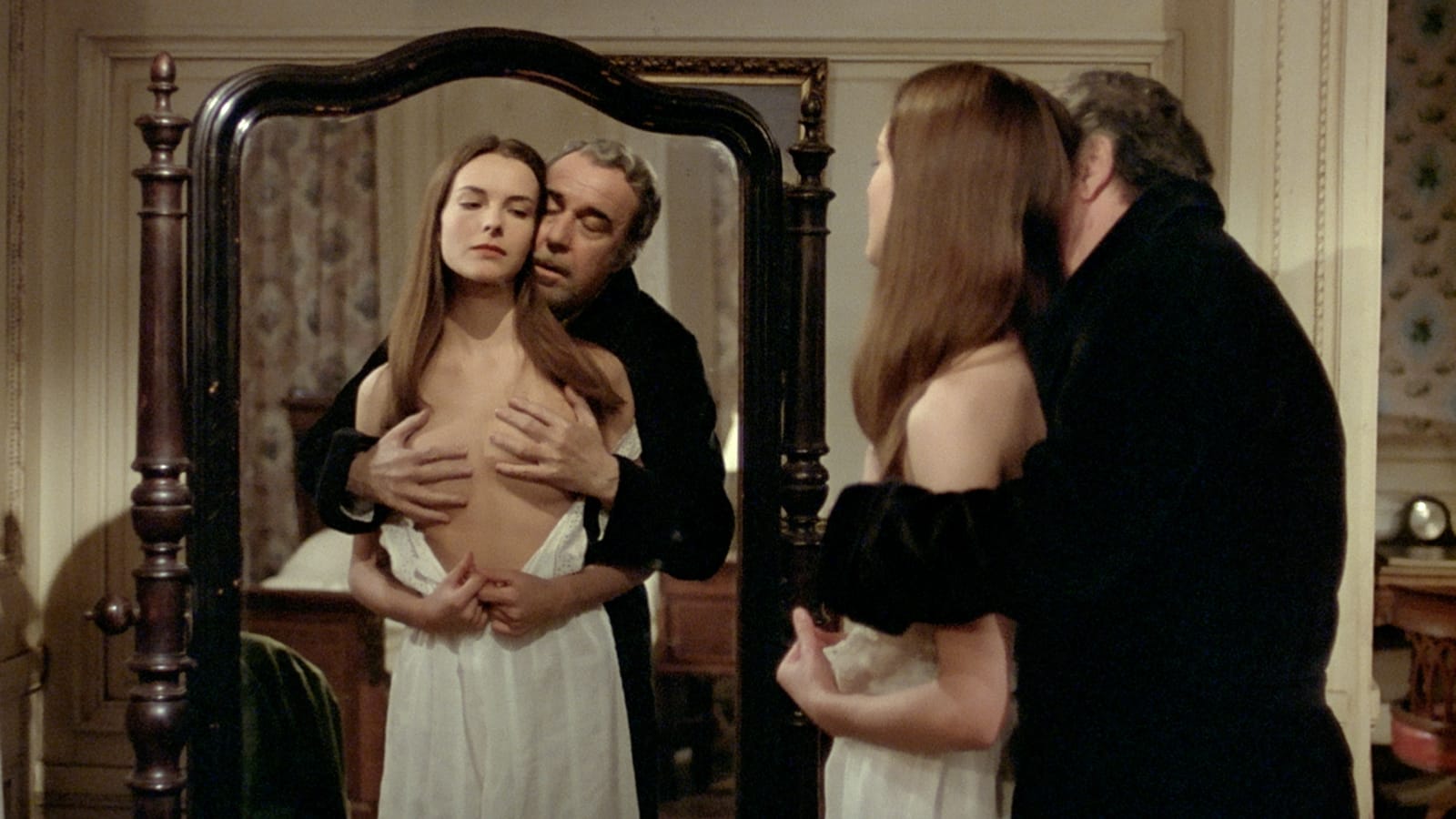That Obscure Object of Desire

Luis Buñuel’s thirtieth and final film was adapted from Pierre Louys’ 1898 novel La Femme et le Pantin, about a respected gentleman who gives up everything, including his dignity, because of his obsessive love for a manipulative, heartless young flirt. The inspiration for Mérimée’s Carmen, this story has been filmed several times, most notably in 1935, by Josef von Sternberg as The Devil Is a Woman with Marlene Dietrich, and in 1959 by Julien Duvivier, starring Brigitte Bardot. That Obscure Object of Desire, however, is distinctly Buñuelian.
The 77-year-old surrealist master injected his version with the biting subversive wit, symbolism, originality and surreal touches that distinguish his finest achievements. Characteristically, he made bizarre choices in the story line and casting. He changed Louys’ Spanish protagonist to a French gentleman, the fiftyish Mathieu, then cast Spanish actor Fernando Rey in the part, only to have him dubbed in French by actor Michel Piccoli. Buñuel emphasized the “two-faced,” unpredictable personality of the 19-year-old Conchita by randomly using two different actresses—sleek French beauty Carole Bouquet and sultry Spanish vixen Angela Molina. Both were then dubbed by a third French actress!
Obscure Object gave Buñuel one last opportunity to present a decadent, dying world characterized by political unrest, twisted values, and moral corruption; and to vent his anger on the idle rich. The droll, urbane Rey, who had already suffered much grief in Buñuel’s Viridiana, Tristana, and The Discreet Charm of the Bourgeoisie, is once again aggravated and humilitated without respite. Terrorist bombs explode around him, street musicians rob him and urban guerrillas beat up his chauffer and steal his automobile. Even nature is hostile in this film: a fly that has been eluding a waiter for a week plunges into Mathieu’s martini; and a mouse dies in a trap at precisely the moment Mathieu pays Conchita’s mother to deliver Conchita to his house. Yet all these travails are insignificant compared to Mathieu’s obsession with the unyielding Conchita.
The movie begins with Mathieu calmly dumping a bucket of water on the bruised Conchita who has followed him to a train station to beg him to take her back . . . again. Mathieu explains his strange action to his fellow passengers in a train compartment (including a midget psychologist who gives “private lessons”). He relates his tale of unrequited love for the beautiful Conchita who led him on, took his money and always claimed she loved him but never relinquished her professed virginity—despite constantly promising the frustrated Mathieu this would happen in time.
The tendency is to feel sorry for the benign Mathieu and detest Conchita for being a sexual tease, but Buñuel is on her side. She is just making sure that Mathieu doesn’t consume her. Conchita must cleverly figure out how she can take Mathieu’s money without letting him buy her. Whereas he tries to trap her, she enslaves him instead. When he tries to put her in the humiliating position of being a kept woman, she humbles him by controlling him—even pushing him out of her life whenever she feels like it. By refusing to marry her, he doesn’t completely fall under her thumb, as does Rey’s bourgeois character once he weds poor Catherine Deneuve in Buñuel’s Tristana. Mathieu reasons “If I marry her, I’ll be completely helpless.” Similarly, by refusing to sleep with him, Conchita doesn’t allow him to possess her; “If I gave in,” she tells him, “you wouldn’t love me anymore.”
Conchita is one of Buñuel’s enigmatic, not-particularly-sympathetic heroines who understands that rich men try to take advantage of powerless women. As long as these men aren’t offering wedding rings, women must withhold sex to keep their pride and power. By not making love to the man she may indeed love, she keeps him from owning her, thereby controlling the nature of their relationship. Clearly, Buñuel, in Obscure Object, presents love as a power struggle. As Vincent Canby wrote, “in this upside-down romance . . . Love, Buñuel seems to be telling us, is a devastating act of subversion.”




